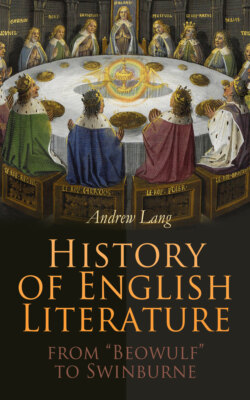Читать книгу History of English Literature from "Beowulf" to Swinburne - Andrew Lang, Robert Kirk - Страница 30
На сайте Литреса книга снята с продажи.
CHAPTER IV.
AFTER THE NORMAN CONQUEST.
ОглавлениеTable of Contents
At the time of the Norman Conquest (1066), the invaders possessed a literature in their own language, poems on the adventures of Charlemagne, and of Roland and the other peers and paladins. But perhaps none of the French poems on Charlemagne, or only one, the "Song of Roland," now exists in a form as early as the date of the Conquest, and they did not then reach the English people.
On the other hand the Norman clergy, many of whom obtained bishoprics and abbeys in England, were much more learned than they of England; and Lanfranc, the Conqueror's Archbishop of Canterbury, threatened to depose Wulfstan, the English Bishop of Worcester, for his ignorance of philosophy and literature. Yet Wulfstan excelled "in miracles and the gift of prophecy". Many new monasteries were founded by the Norman kings, homes of learning, each with its scriptorium (writers' room), in which new books were written, and old books were copied, almost all of them in Latin. St. Albans became a specially learned monastery and home of historians, while Roman law, medicine, and theology were closely studied, and books were lent out to students from the monastic libraries, a pledge of value being deposited by the borrower.
